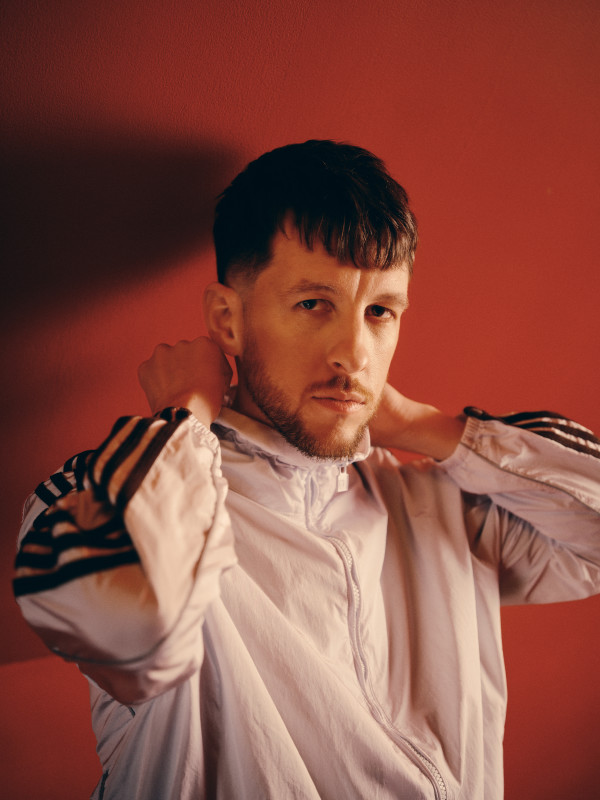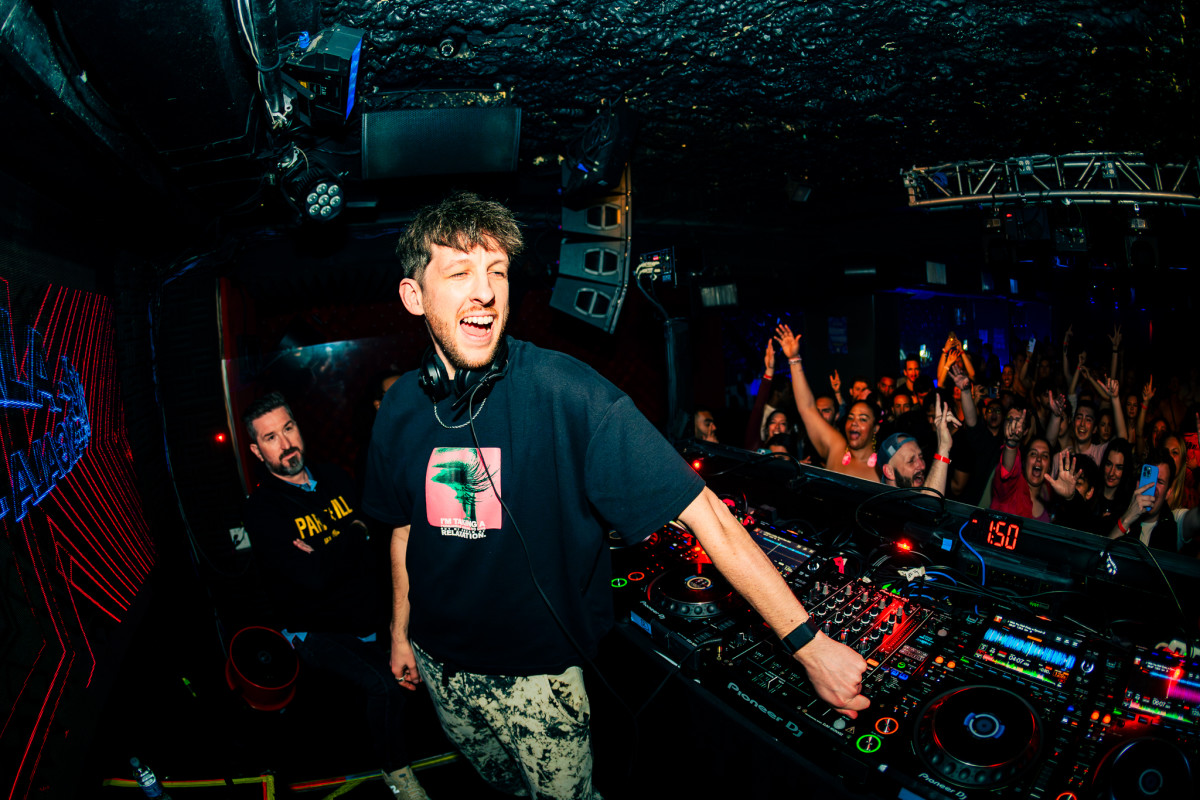Hearing the bubbly, walk-on-air music of Sigala, you’d never guess the first dance record he ever picked up.
That was a CD containing a Clubland X-Treme Hardcore compilation, one of many that were instrumental in the popularization of hardcore techno, acid house, gabber and other heart-pounding genres after the series’ 2003 inception.
His formative years in music were spent immersing in the raw, unfiltered electropunk energy of The Prodigy and the ferocious drum & bass of Pendulum and NERO, among other deeply influential electronic acts. Now, after nearly a decade of painting dancefloors with the pastel hues of dance-pop, Sigala is diving back into the palpitating underbelly of club culture that once fascinated him as a young boy in England.
For those weaned on his many Platinum dance-pop confections, this evolution may induce whiplash. But for the nocturnal creatures who thrive in the strobe-lit chaos of the underground, it’ll feel like home.
Sigala’s shift, which his label has called the start of a “bold new era,” feels like watching a mad scientist in action—delightfully unhinged and hungry for more. We caught up with the hit-making producer to discuss his next chapter and the “liberating” experience of making music for the rave in lieu of the radio.

EDM.com: Take us back to the beginning. Which artists and sounds deeply inspired you growing up in Norfolk?
Sigala: So this sounds like a made-up story, but the way I discovered electronic music was when I found a CD on the side of the road in Norfolk, England where I grew up. CDs were still shiny cool objects back then, so I picked it up. I had no idea what it was, and it turned out to be a Clubland X-Treme Hardcore mix and it blew my little mind.
I’d honestly never heard anything like it before. I was just a kid at this point and my parents were into bands and rock music so that was all that I had heard. I hadn’t heard much in terms of electronic music. It really excited me, and I got obsessed with the CD, then I started to discover other artists of different genres. I listened to a lot of drum & bass from people like Sub Focus, lots of Fatboy Slim, NERO, Prodigy and Pendulum—such a sick time for electronic music. So that was my early years of getting into dance music or electronic music.
EDM.com: Fast-forward to 2024, a year that’s said to kickstart a “bold new era” of your production after seven Platinum-certified global dance hits. What inspired you to move towards a more rave-inspired sound?
Sigala: Honestly, I just get bored of doing the same thing. I know there’s a lot of purists when it comes to genre, but I don’t think genre has to be so black and white. I think it can be way more fluid.
I’m always looking for a new sound or a new idea that I can get excited about dropping at my next show. I also think it’s really important to keep pushing yourself and trying to break the mold or break other people’s perception of you. Plus I just really love ravey tunes.

EDM.com: Do you feel a sense of creative liberation now that you’re experimenting with a more club-oriented sound? How does it compare to crafting radio-friendly hits?
Sigala: It’s definitely rewarding in a totally different way because the stuff that I make for radio I’m always having to make edits, club edits, festival edits to make sure it works in a club environment. The pop stuff is never written with the club or live performance in mind, so it has been really fun making music that is solely designed for live consumption and being able to see a real-time response.
That’s been really fun, approaching it in a different way and thinking about a different audience and a different experience—liberating in its own way.
EDM.com: Looking back on “Easy Love,” which is celebrating its 10th anniversary next year, can you dissect the evolution in your approach to production? Beyond the higher tempos, what changed?
Sigala: I don’t think my approach to production and making music has changed—I guess it’s just my taste that will always keep evolving. Saying that I do think it’s important to never stop learning and I still buy nerdy producer magazines and waste money on new synths that I will never use!
EDM.com: From a technical standpoint, is there a music production epiphany you had along the way that you wish you could go back in time and implement in that debut single?
Sigala: That’s a really interesting question! Maybe one thing that I was very guilty of when I first started producing was layering sounds unnecessarily. A big lesson I have learned along the way is that sometimes ‘less is more’ and you can make a bigger sound with less parts or less layers. That’s something that I’ve had to be strict on myself with, and something that I try to avoid doing.
Now I try to make each sound as good as it can be before you start adding more in, because you can probably make it work with what’s already there. That bad habit also probably came from a lack of confidence in my own skills—now it’s about being brave and saying this is the killer sound that people need to hear.
EDM.com: Your music of yesteryear often explored chasing love and the highs that come with it. From a lyrical perspective, will your stylistic shift in sound come with any surprising themes or subject matter?
Sigala: I have lost count of how many of my songs have “Love” in the title, but I guess it’s such a universal feeling, so everyone can relate to it. I try not to overthink that stuff though. When it comes to lyrics and concepts, it either resonates with me or it doesn’t.
It really is a case of, “Does it make me feel something when I’m listening to it?” If it makes me feel something, then usually that will translate to other people. The lyrics do definitely have an impact on how I approach the style of the track though, so with new genre exploration there will definitely be a change in lyrical content.
EDM.com: You’ve worked with a diverse range of artists, from Kylie Minogue to The Vamps and now 24kGoldn. How do you adapt your sound to suit different collaborators without compromising your signature style?
Sigala: It’s one of the reasons why I love working with other people: it gives me more of a license to experiment with other sounds. I would never have made a disco-inspired record if it wasn’t for the involvement of Nile Rodgers on “Give Me Your Love.” I loved working with Fuse ODG because I was able to experiment with mixing Afrobeats with my own style, and it’s the same story for a lot of my songs.
I kind of love that you asked that question because I really don’t want to be known for just one genre or one track.
EDM.com: What’s next for you? What’s the most exciting thing in the Sigala pipeline you can give our readers without getting into trouble?
Sigala: Haha! Not sure if I can reveal. More great music that you need to listen to loud!
Follow Sigala:
X: x.com/sigalamusic
Instagram: instagram.com/sigala
TikTok: tiktok.com/@sigalamusic
Facebook: facebook.com/sigalamusic
Spotify: tinyurl.com/5e2z8ehm